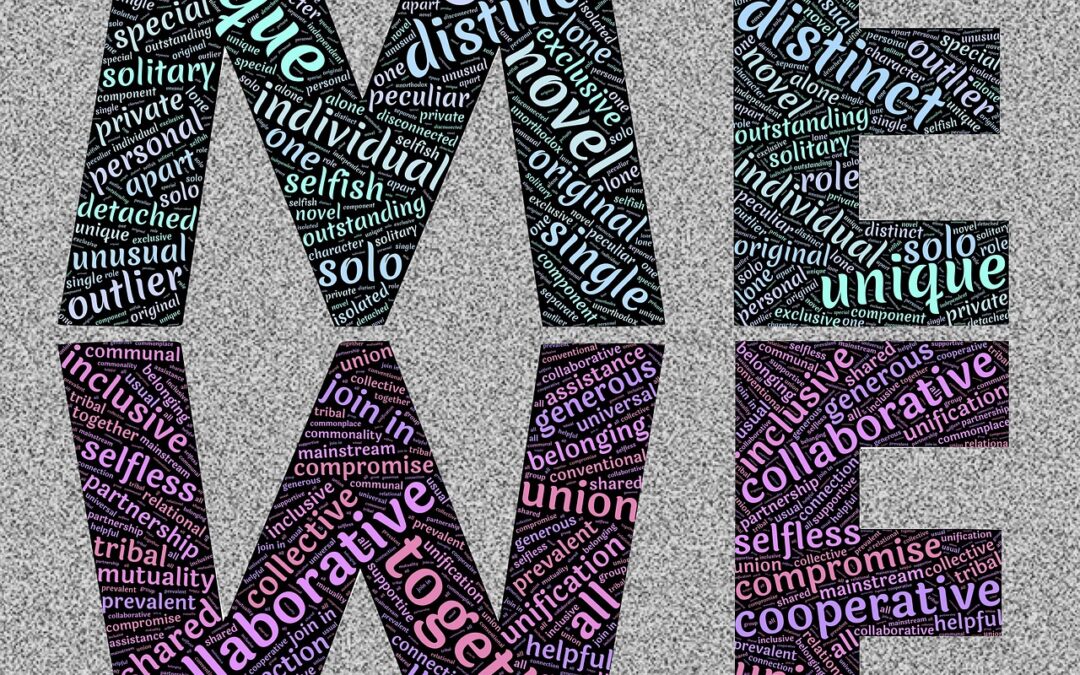We and me overlap at times and not at others. We each need me time, but every me has a need of we time also. It is not always something that happens, but both needs are real.
A few years back, as a senior software developer and application architect, I sat down with a junior developer who was intimidated by my history. We were co-workers, and I was new at the company. We will call them Sean since, in my memory, I have never had a co-worker by that name.
Sean was like you and me. Sean felt intimidated by the books and my public conference speaking. Then there are decades of experience on our career path beyond their experience. What Sean was missing may have been inspired by some bad experiences in the past. It wasn’t humility, it was anxiety.
Ego Increases Friction
This is not ego from the junior dev; it is from either side. We are going to take the positive mindset approach here. The goal is to highlight what works because the focus on what doesn’t work can be so many things we don’t want to have someone thinking it doesn’t connect with a win for them. What does work is nearly universal. Oh, and by work, we don’t mean we control the outcome. We always influence outcomes, and others make their own choices.
As senior career workers, as bosses, or as teachers, we are likely going to have more to offer than new workers. More has a value that should not blind us to the value of others. I may be able to do something faster. But if the others can do it fast enough to be successful, that is a win. Winning is more than exceeding what others can do.
Satisfaction Energizes Us To Action
Satisfaction doesn’t mean complacency. It usually means growth. Those who are not growing tend to be dissatisfied. The question I ask is, why are we wanting to grow in that direction? Each of us has a capacity for time and resources. We spend our time and resources better when satisfied than we do when we are blinded by anxiety. Yes, from my perspective, anxiety is the opposite of satisfaction.
The issue that happened with Sean was an anxiety blinder. Engagement became a challenge for each of us. This created fertile ground for anxiety on my side also. All I needed to do was make it about me, to become inward-minded in how the relationship was progressing. The answer was to be outward-minded. On both sides, outward-minded thinking allows us to see the other person with value.
In this view of each other, we don’t depend on the view being mutually practiced to understand the other. Understanding others greatly increases our ability to improve our interactions. If we are satisfied, we count reverse engagement as a bonus. This keeps us from subconsciously communicating our anxiety. That is the power of satisfaction to give our best at the moment.
Did You Catch The We Mindset?
When we say we, it is not about seeing ourselves as superior or inferior. It is simply seeing the other person and understanding their thinking. We don’t have to agree with their thinking to understand it. It is not helpful to say, “let’s agree to disagree.” That is a socially less abrasive way to argue, but not the goal. What if, instead, we reflect back with our words what they seem to be feeling, thinking, or wanting?
After we let them know they are heard, we can politely share we are not on the same page, but now we better understand the other person or people we are talking with. It is amazing how this reduces the anxiety of conversations and relationships. Anxiety tends to build protective walls, where this tends to create bridges.
There is a name for this mindset. It is grace. Being gracious takes more strength than acting without it. It also provides more influence and impact. Grace is acting with the other person in mind. It is not about acting in agreement.
Key to Common Ground
Have you ever sat in business meetings and felt the absence of grace? Remember to be gracious to those people that were in that meeting. In fact, the first thing we may need to do is to be gracious to ourselves. When we invite ourselves to pursue options, that prepares an opportunity for others where we could have been preparing obstacles.
It may take a few meetings and discussions for others to expect engagement, being heard, and opportunity to become the new purpose of meetings. It may take months, but that is okay because we learned the power of satisfaction to connect and make progress.
Now I, or you, have shifted to a presence of opportunity in how we engage. This doesn’t mean we have to volunteer, agree to, or avoid responding. It simply changes how we approach each of those topics. It makes us more relaxed if someone is asking for control of us they don’t have, and it reduces how we inspire their anxiety.
The ME (in) MEaning
We thinking is when each of us can say I am interested in understanding you in a way that appropriately matters. We aren’t we if me doesn’t connect to we. If we overrides the meaning of me, then I am asked to be an imposter. It is asking for fake me to substitute for the real me to have a relationship. This includes work relationships.
This is less of a struggle when we learn we don’t have to agree to engage. Engagement in team activity has boundaries. If the team chooses a different color for the business logo, that is rarely a deal breaker. It could be, but rarely. This is a discussion about preference, not identity.
Likewise, if our co-workers don’t ever get their preference, or we always argue for ours, then me gets in the way of others feeling we. The best place to experience preference is with family and friends. Healthy relationships there will increase our capacity to endure challenging fellows in our careers.
So, again, each of us desires meaning in life and in our work. If you reach for it at your job, and the opportunity doesn’t grow or move forward, then keep the relationships good there and look for other opportunities. Consider that our skills in being outward-minded matter because there will be people and moments in our future these skills will improve the days here or there. We cannot look for good culture if we are not also skilled at creating good culture.
How will you influence your and the future of your fellow workers today?




Recent Comments